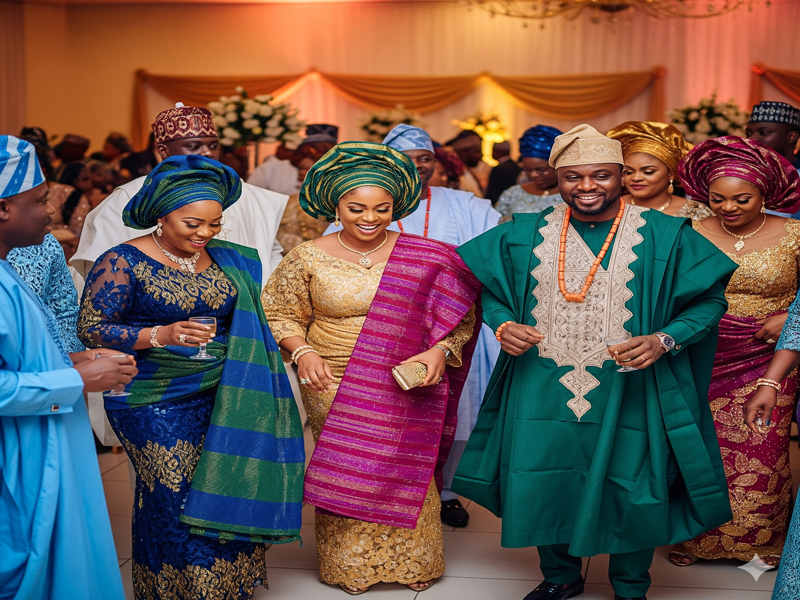Winning negotiations in event planning deals is probably one of the most difficult skills to adapt to as event professionals. Many have lost major accounts or settled for deals that didn’t favour their bottom line, based on their ignorance of certain fundamental steps or factors needed to seal a deal.
The skill of negotiation in event planning is a must-have for every event manager who wants to remain relevant because it is the tool that will help you earn favourable win-win terms between you and various clients, vendors, and event venue owners, by maximizing profit, and building mutually beneficial relationships and trust. More so, well-developed negotiation skills help you manage risk, handle challenges and settle disputes that may arise during planning.
However, brace up for an exciting time, as you will soon uncover the best insights you need to have to be able to win your next negotiation for the best event planning deal ever. This piece will explore and highlight core concepts that will guide your strategies and ensure that you do not lose out at any level.
1. Do a mind reset to win negotiations in event planning
Many event professionals have a rather incorrect motive for being in the trade. This has contributed to making them embrace strategies that may not help provide the best results. This might not be acceptable to you, but experience has made me know that your major aim as an event professional should not only be to make money, but also to build a brand for yourself and make meaningful relationships and networks that will fetch you high ratings in the industry.
These priceless collaterals that money cannot replace will speak for you when the stakes are down. These collaterals also help to build self-confidence. Clients want to deal with people who portray self-confidence, and who they can trust
2. Understand the Negotiation process
To win your next negotiations in event planning, you must understand the negotiation process. The process involves setting an objective for yourself, in other words, determining your specific areas of importance and interest before entering into any discussion, and setting boundaries based on variables that are on the ground. For instance, based on the budget available, will it be possible to carry out a pre-event promotion?
Another integral part of the negotiation process you must understand involves carrying out thorough research and meticulous analysis. Understand the variables that are involved, as well as the areas that may likely be in contention, so you can seek ways of dealing with them on time before discussion. You must be armed with current market realities, economies, and specific information on venues, vendors and potential risks.
3. Develop an Effective communication technique to win negotiations in event planning
Being able to effectively communicate is an essential factor for negotiations in event planning. To win your next negotiation, you should be able to pass along to your client, specific and convincing information that is relevant and will help them make the best decision. So avoid being ambiguous, listen to understand, not just to respond. Remember, communication is not complete without feedback; the feedback helps you to know if all you have been trying to pass across has been well comprehended.
Effective negotiation also requires both empathy and active listening, they entail paying close attention to, without passing judgment or interjecting, the other party’s viewpoints and concerns. You can establish connections with your client by putting yourself in their shoes to understand their feelings and gain trust.
4. Finalizing and understanding the terms and conditions
Negotiating the terms and conditions is one part that must never be taken lightly. This is where agreements and specific positions are captured. In doing this, ensure that the terms and conditions match the interests and requirements of all stakeholders that are involved. Make sure you understand them clearly before going forward or else ask for a little time to study the T&C before taking other steps.
At this point, deliberations have to be conclusive and terms such as liabilities, deliverables, timelines, and pricing, should be outlined transparently and agreed upon. Concerns should be addressed immediately and concluded as well. All agreements should be documented in a simple, plain language understood by all parties, signed and delivered to all.
5. Don’t Burn bridges
Not all negotiations in event planning may go your way, you win most and lose a bit. Be a sportsman and don’t burn the bridge behind you, that contact is still a gold mine. Remember, I mentioned that you are not in the profession only to make money, but rather to build relationships, build your brand and create a network that will enhance your net worth.
Losing a negotiation does not mean you are not good at your trade, it is rather a wake-up call to look inward to see why it didn’t work and learn better ways of presenting your facts and terms.
In summary, the need for good negotiating skills cannot be overemphasized. You have to get good at negotiation by getting acquainted with the factors that have been stated above. I also advise you to read more articles and books for more insightful thoughts in addition to the powerful ideas I have already shared with you.









